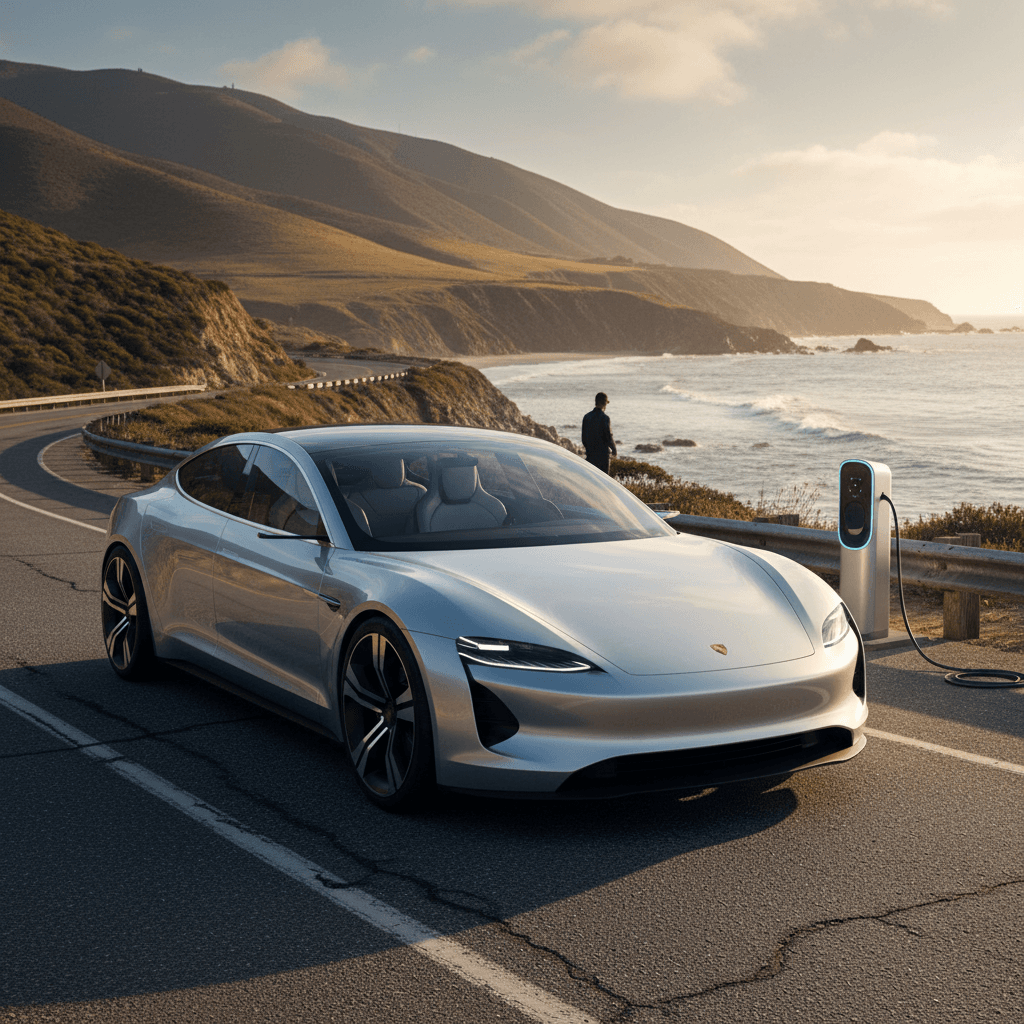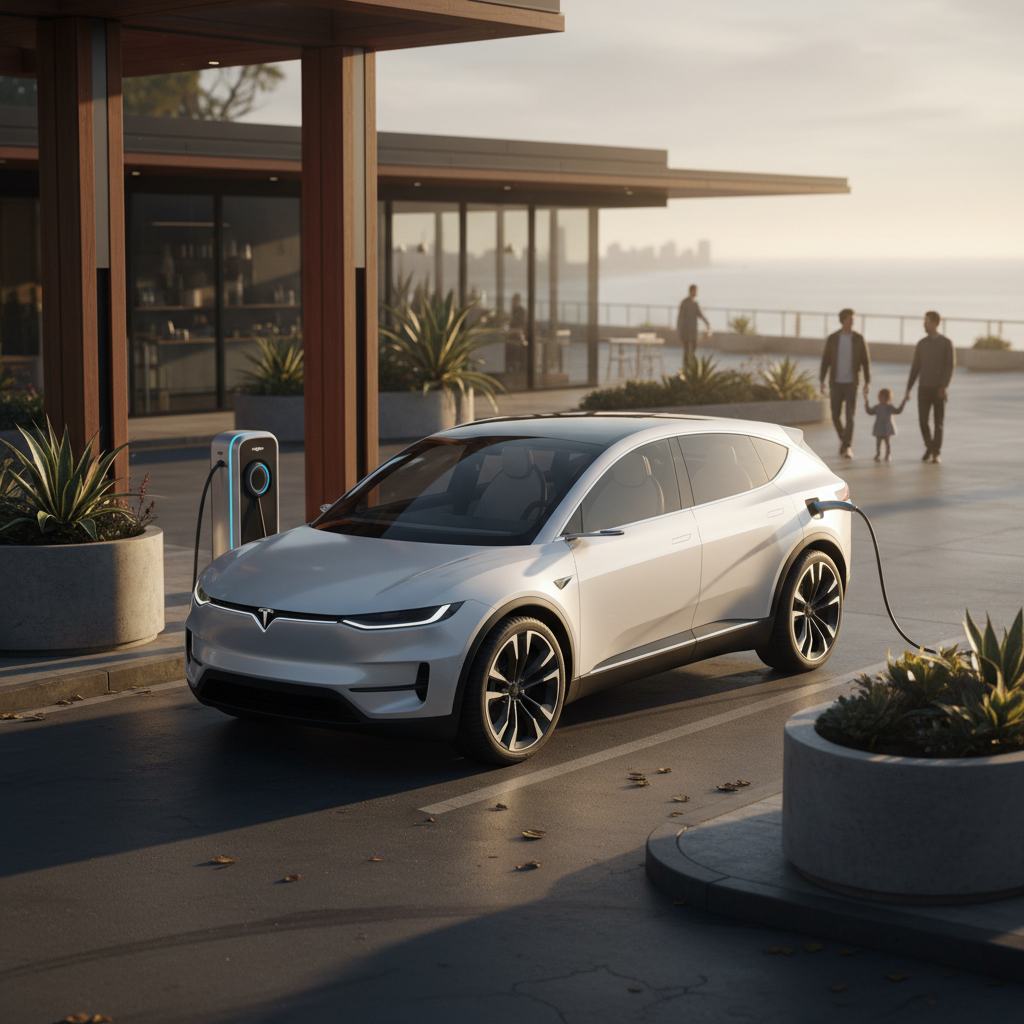If you’ve been waiting for the right moment to jump into an electric car, 2025 is your kind of year. Used electric car deals are better than they’ve ever been, with late‑model EVs often selling for about the same, or even less, than comparable gas cars. The trick is knowing which deals are real bargains, and which ones hide a tired battery or ugly financing in the fine print.
Why this moment matters
Why used EV deals are so good right now
The used EV deal landscape in 2025
Used EV prices went on a rollercoaster from 2022 through early 2024. Now the ride is finally slowing down. Over the past year, the average price of a 1‑ to 5‑year‑old electric car has landed around $32,000, with year‑over‑year drops of roughly 15% while the overall used market barely moved. In other words, the value gap that used to make gas cars the obvious budget choice has mostly disappeared, if you shop smart, a used EV can be both cheaper to buy and cheaper to own.
Why this favors buyers
How much used electric cars cost in 2025
If you’re hunting for used electric car deals, it helps to know what the ballpark looks like before you fall in love with a specific listing. In early–mid 2025, most mainstream used EVs in the U.S. sit in a fairly tight band between the high teens and the mid‑$30,000s, with luxury models stretching that curve upward.
Typical used EV price bands in 2025 (1–5 years old)
These are ballpark asking price ranges you’ll commonly see from dealers and online marketplaces in the U.S. for well‑kept, accident‑free cars. Local markets will vary.
| Segment / Example | Common Price Band | What this usually buys you |
|---|---|---|
| Affordable commuter EVs (Leaf, Bolt, Kona, Niro) | $15,000–$25,000 | City‑friendly range, earlier tech, great value if the battery is healthy. |
| Mainstream crossovers (VW ID.4, Mustang Mach‑E, Kia EV6, Hyundai IONIQ 5) | $25,000–$35,000 | Family‑friendly space, modern safety tech, solid road‑trip range. |
| Used Tesla Model 3 / Y | Low $20,000s–mid $30,000s | Lots of range and fast charging; pricing now often under comparable gas SUVs. |
| Premium / performance EVs (Audi e‑tron, Porsche Taycan, BMW i4) | $40,000+ | Luxury interiors, serious power, and higher potential repair costs. |
Use these as guardrails: a listing way outside these ranges deserves a closer look.

Watch the fees, not just the price
Best places to find used electric car deals
Where the best used EV deals tend to hide
Not all used‑car lots are created equal, especially with EVs.
Online EV marketplaces
Dedicated EV platforms like Recharged and other specialty sites focus on electric cars, not everything under the sun.
- EV‑savvy support and guidance
- Battery health reports and history
- Financing and trade‑in options baked in
Franchise & brand dealers
Brand dealers (Hyundai, Kia, Ford, Tesla, etc.) often get lease returns and off‑lease vehicles with known histories.
- Access to brand‑specific service records
- Certified pre‑owned (CPO) options
- Good for warranty transfers
Independent EV specialists
Smaller dealers that live and breathe EVs can offer sharp pricing and honest guidance.
- Often more flexible on price
- Can explain charging, range, and software in plain English
- May help set up home charging
You can absolutely find a used EV deal on the big, general‑purpose classifieds sites, but you’ll do more of the homework yourself. EV‑focused retailers and marketplaces like Recharged build the EV‑specific due diligence into the process, with things like verified battery diagnostics, transparent pricing, and help with charging and incentives. That’s especially valuable if this is your first electric car and you don’t want to learn everything the hard way.
How Recharged fits in
How to spot a genuinely good used EV deal
Signs you’ve found a good deal
- Price in line with current market for that year, trim, and mileage, not just with gas cars.
- Battery health documented with a recent diagnostic, not just a casual “range seems fine.”
- Clean history report with no major accidents, flood damage, or title issues.
- Service records showing recall work and software updates are up to date.
- Transparent fees and a competitive interest rate if you’re financing.
Red flags to walk away from
- Unusually low price with no documentation on battery condition.
- Seller won’t let you take the car for an extended drive or pre‑purchase inspection.
- Range that’s dramatically lower than what that model typically delivers.
- “Rebuilt” or “salvage” title with vague explanations about previous damage.
- Dealer pressure tactics: “This price is only good today” or refusal to share an itemized buyer’s order.
Use comparable shopping like a pro
Don’t get burned: battery health and warranty

A screaming deal on a used EV can evaporate fast if the battery is tired. Replacing a traction battery can run into the five‑figure range on many models, so you want the pack to be a long‑term partner, not a ticking time bomb.
- Look for a battery health report, not just a dashboard range estimate. Tools like the Recharged Score use diagnostics to measure real usable capacity.
- Ask how the car was used: mostly highway commuting, or lots of DC fast charging? Heavy fast‑charging use can accelerate degradation.
- Compare real‑world range on a test drive to what reviewers and owners commonly report for that model and year.
- Verify whether the original battery warranty (often 8 years/100,000 miles, sometimes more) is still in effect and transferable.
Be wary of flood or auction specials
Financing used EV deals so the numbers work
The hottest used electric car deals can fall apart if you’re paying too much in interest or stretching the loan too long. EVs depreciate differently from gas cars, and you don’t want to owe more than the car is worth halfway through the loan.
Smart ways to finance a used electric car
A good deal is about total cost, not just monthly payment.
Keep the term reasonable
Try to keep used‑car loans to 60 months or less, even if longer terms look tempting.
That helps you stay ahead of depreciation and gives you flexibility if you want to sell or trade in later.
Shop rates before you shop cars
Get pre‑qualified with your bank, credit union, or a platform like Recharged before you fall for a specific car.
Knowing your rate range upfront protects you from costly dealer markups.
Use your trade‑in wisely
If you’re coming out of a gas car, use its equity to bump up your down payment.
On Recharged, you can get an instant offer or consignment options to maximize the value of your current car.
Total cost of ownership still favors EVs
Used EV incentives and fees: what still applies
The federal used EV tax credit of up to $4,000 that helped many shoppers is no longer available for vehicles purchased after September 30, 2025, thanks to recent tax law changes. That doesn’t mean you’re on your own, though, state and local programs can still tilt the math in your favor.
- Many states still offer rebates or tax credits for purchasing a used EV or installing home charging, check your state energy office or DMV website.
- Some utilities provide off‑peak charging discounts or bill credits if you charge overnight.
- A few states now charge additional EV registration fees in lieu of gas taxes; bake that into your cost comparison.
- Dealers and marketplaces occasionally layer on their own incentives, discounted home chargers, free delivery, or reduced finance rates for EVs.
Local homework pays off
Which used EVs tend to be the best deals
Every market is different, but some patterns are clear. Models that depreciated fastest on the new‑car side often show up as standout values on the used side, assuming you’re comfortable with their quirks and you verify the battery is healthy.
Where the value often lives in the used EV world
These categories tend to deliver the most bang for your buck.
Early mainstream EVs
Nissan Leaf, Chevy Bolt, Kia Niro EV, Hyundai Kona Electric
Great commuter cars at surprisingly low prices. Watch battery health and, for the Bolt, confirm recall work is done.
Popular crossovers
VW ID.4, Ford Mustang Mach‑E, Kia EV6, Hyundai IONIQ 5
Family‑friendly, modern interiors, decent road‑trip range. Often priced below comparable new compact SUVs.
Used Teslas
Model 3 and Model Y
Big depreciation plus a huge supply of off‑lease cars means deals are common. Supercharging access and software features add value if the price is right.
Performance EVs: thrilling but tricky
Checklist before you buy any used electric car
Your pre‑purchase used EV checklist
1. Confirm your real budget
Include taxes, fees, insurance, home charging, and any EV registration fees, not just the listing price. Get pre‑qualified so you know your payment range.
2. Verify charging will work for your life
Do you have access to home or workplace Level 2 charging? If not, map out nearby public chargers and check their reliability in apps before you commit.
3. Demand a battery health report
Ask for documented diagnostics, not just “it seems fine.” On Recharged, the Recharged Score Report includes verified battery health so you’re not guessing.
4. Check history and recalls
Pull a vehicle history report, read it carefully, and check for open recalls. For EV‑specific recalls (like battery or charging systems), confirm repairs are completed.
5. Take an extended test drive
Drive the car on your real routes, highway, city, hills if possible. Watch range, charging behavior, and any warning lights. Use this to sanity‑check the seller’s claims.
6. Get an EV‑savvy inspection
If you’re buying privately or from a non‑EV specialist, consider a pre‑purchase inspection from a shop that understands electric drivetrains and high‑voltage safety.
Frequently asked questions about used EV deals
Used electric car deals: your questions answered
Bottom line: how to shop smart for a used EV
The headlines are right: this is a uniquely good moment for used electric car deals. Prices have come down to earth, supply has grown up, and there are more models to choose from than ever. The winners in this market are the buyers who treat an EV like what it is, a high‑tech machine with a battery at its heart, not just another used car on a lot.
If you focus on battery health, realistic range, and total cost of ownership, and you lean on EV‑savvy partners to fill in the gaps, you can land a used electric car that serves you for years without draining your savings. Whether you shop locally or browse a curated marketplace like Recharged, take your time, ask hard questions, and let the bad deals walk. The good ones are out there, and in 2025, there are more of them than ever.



